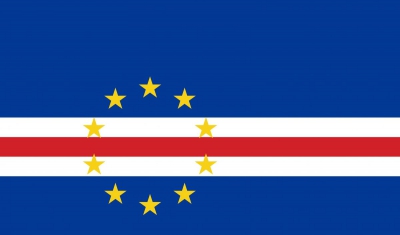So Tom and Prncipe (; Portuguese: [sw tum i psp]; English: "Saint Thomas and Prince"), officially the Democratic Republic of So Tom and Prncipe (Portuguese: Repblica Democrtica de So Tom e Prncipe), is an island country in the Gulf of Guinea, off the western equatorial coast of Central Africa. It consists of two archipelagos around the two main islands of So Tom and Prncipe, about 150 km (93.21 mi) apart and about 250 and 225 km (155 and 140 mi) off the north-western coast of Gabon. With a population of 201,800 (2018 official estimate), So Tom and Prncipe is the second-smallest and second-least populous African sovereign state after Seychelles.
The islands were uninhabited until their discovery by Portuguese explorers in the 15th century. Gradually colonized and settled throughout the 16th century, they collectively served as a vital commercial and trade centre for the Atlantic slave trade. The rich volcanic soil and proximity to the equator made So Tom and Prncipe ideal for sugar cultivation, followed later by cash crops such as coffee and cocoa; the lucrative plantation economy was heavily dependent upon African slaves. Cycles of social unrest and economic instability throughout the 19th and 20th centuries culminated in peaceful independence in 1975. So Tom and Prncipe has since remained one of Africa's most stable and democratic countries.
The people of So Tom and Prncipe are predominantly of African and mestio descent, with most practicing Roman Catholicism. The legacy of Portuguese rule is also visible in the country's culture, customs, and music, which fuse European and African influences. So Tom and Prncipe is a founding member state of the Community of Portuguese Language Countries.
Cape Verde ( (listen)) or Cabo Verde ( (listen), ; Portuguese: [ˈkabu ˈveɾdɨ]), officially the Republic of Cabo Verde, is an archipelago and island country in the central Atlantic Ocean, consisting of ten volcanic islands with a combined land area of about 4,033 square kilometres (1,557 sq mi). These islands lie between 600 to 850 kilometres (320 to 460 nautical miles) west of Cap-Vert, the westernmost point of continental Africa. The Cape Verde islands form part of the Macaronesia ecoregion, along with the Azores, the Canary Islands, Madeira, and the Savage Isles.
The Cape Verde archipelago was uninhabited until the 15th century, when Portuguese explorers discovered and colonized the islands, thus establishing the first European settlement in the tropics. Because the Cape Verde islands were located in a convenient location to play a role in the Atlantic slave trade, Cape Verde became economically prosperous during the 16th and 17th centuries, attracting merchants, privateers, and pirates. It declined economically in the 19th century due to the suppression of the Atlantic slave trade, and many of its inhabitants emigrated during that period. However, Cape Verde gradually recovered economically by becoming an important commercial center and useful stopover point along major shipping routes. In 1951, Cape Verde was incorporated as an overseas department of Portugal, but its inhabitants continued to campaign for independence, which they achieved in 1975.
Since the early 1990s, Cape Verde has been a stable representative democracy, and has remained one of the most developed and democratic countries in Africa. Lacking natural resources, its developing economy is mostly service-oriented, with a growing focus on tourism and foreign investment. Its population of around 483,628 (as of the 2021 Census) is mostly of mixed African and European heritage, and predominantly Roman Catholic, reflecting the legacy of Portuguese rule. A sizeable Cape Verdean diaspora community exists across the world, especially in the United States and Portugal, considerably outnumbering the inhabitants on the islands. Cape Verde is a member state of the African Union.
Cape Verde's official language is Portuguese. It is the language of instruction and government. It is also used in newspapers, television, and radio. The recognized national language is Cape Verdean Creole, which is spoken by the vast majority of the population.

1975Sep, 16
Cape Verde, Mozambique, and São Tomé and Príncipe join the United Nations.
Choose Another Date
Events on 1975
- 26Jun
Pine Ridge Indian Reservation
Two FBI agents and a member of the American Indian Movement are killed in a shootout on the Pine Ridge Indian Reservation in South Dakota; Leonard Peltier is later convicted of the murders in a controversial trial. - 15Aug
Sheikh Mujibur Rahman
Bangladeshi leader Sheikh Mujibur Rahman is killed along with most members of his family during a military coup. - 15Aug
Yasukuni Shrine
Takeo Miki makes the first official pilgrimage to Yasukuni Shrine by an incumbent prime minister on the anniversary of the end of World War II. - 27Aug
Dili
The Governor of Portuguese Timor abandons its capital, Dili, and flees to Atauro Island, leaving control to a rebel group. - 1Oct
Ellice Islands
The Seychelles gain internal self-government. The Ellice Islands split from Gilbert Islands and take the name Tuvalu.

 English
English  español
español  français
français  português
português  русский
русский  العربية
العربية  简体中文
简体中文 